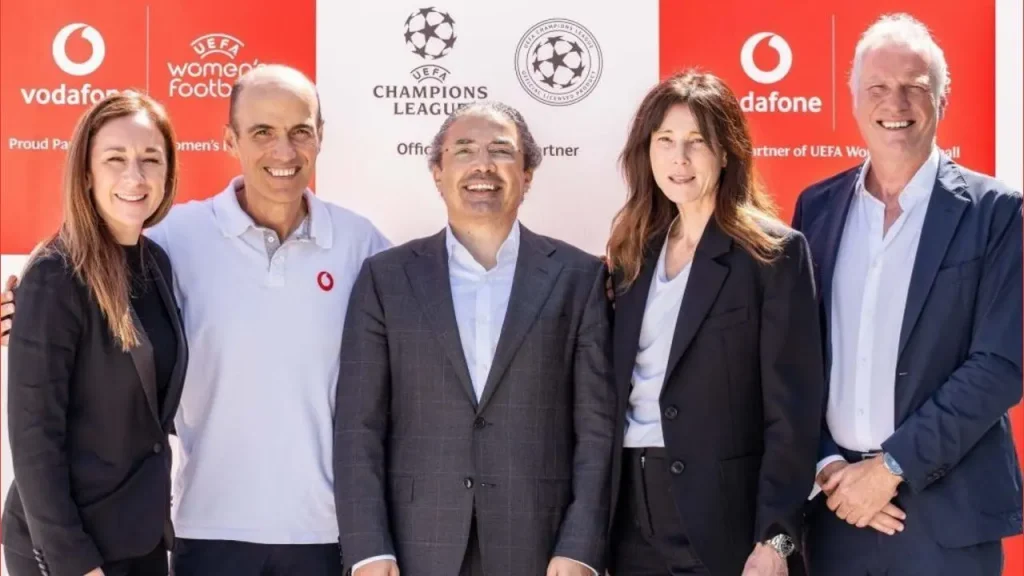- Vodafone becomes official UEFA Women’s Football partner and licensee for the Champions League for 2025–2027, while sponsoring multiple women’s tournaments.
- It launches a Champions Travel eSIM offering connectivity in 206 countries and promises fan benefits like ticket giveaways.
What happened: Vodafone expands role in European football with UEFA partnership and new travel eSIM
Vodafone and UC3, a joint venture initiated by UEFA and the European Club Association to look after club competition commercial rights, have come to an arrangement regarding a multi-year partnership. This agreement will extend to both men’s and women’s competitions and last until 2030. Vodafone cooperates with UEFA Women’s Football as an official partner, supporting youth competitions, the Women’s Nations Championship, the Women’s Champions League, and the Women’s EURO 2029. For the 2025–2026 and 2026–2027 seasons, it will operate as a licensed partner of the men’s UEFA Champions League. Yahoo Sports insists that the collaboration improves Vodafone’s dominance in the European football market.
Vodafone has also introduced the Champions Travel eSIM, a service offering global connectivity in 206 countries, including all 55 UEFA member nations. The company says the product includes unlimited data options, WiFi hotspot functions, and dedicated customer support. Ahmed Essam, Vodafone CEO for European Markets, underlined the company’s commitment to women’s football development, while Nadine Kessler, UEFA Women’s Football Director and a former FIFA Women’s World Player of the Year, said the growth of the women’s game makes corporate partnerships increasingly significant.
Also read: Vodafone and Three to overhaul infrastructure for smarter growth
Also read: Vodafone launches $545M buyback after growth
Why it is important
Following an unprecedented registration at the UEFA Women’s EURO 2022, this partnership shows the growing commercial strength of women’s football in Europe. Vodafone’s long-term support within 2030 brings stability that may help elite and grassroots structures, and its eSIM seeks to address roaming costs while complying with the purposes of the EU digital market.
The partnership, which references decisions like Orange’s taking part in the 2024 Summer Olympics in Paris, indicates to the communications sector how mobile technology is becoming key to live sport. Following up on its promises of reliable service and affordable ticket access will be Vodafone’s challenge. Would the agreement be successful, it might develop a norm for incorporating digital services into major international occasions.

